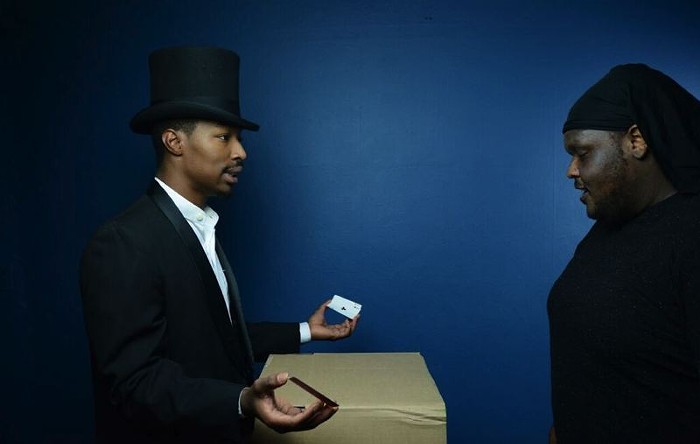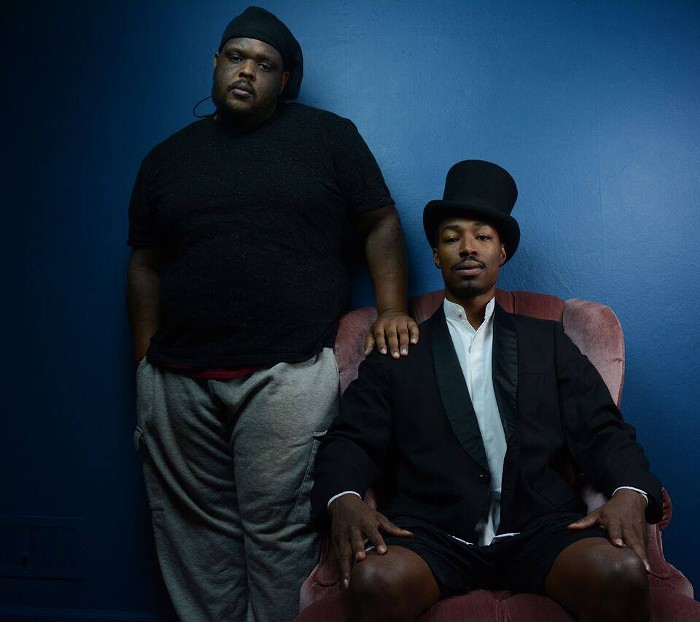If there’s a scream inside you right now asking, “What is this strange country I live in? Who should be in charge? Why do people think they deserve power over others?”, Topdog/Underdog is a play you’ll want to see. It isn’t a new play—these aren’t new questions—but it won playwright Suzan-Lori Parks a Pulitzer in 2002 (after she won a MacArthur “Genius” Grant in 2001). My love for Parks’ work took me out to Milwaukie on a dark November evening, just to see the staging of one of her plays by capable co-directors Bobby Bermea and Jamie M. Rea. I didn’t even know there would be pizza.

Milwaukie’s Chapel Theatre opened in February; it’s a small, versatile playhouse in a refurbished church building. Seating is of the folding chair variety, but the bathrooms are all-gender and it has a pizza place in its basement called Secret Pizza Society, which specializes in pizza gyros that they call “pyros.” I have to get back to being serious for this review, but I was very impressed with Chapel Theatre and if they keep putting on interesting works I will continue taking the bus to Milwaukie to eat pizza see them.
Topdog/Underdog is about two Black brothers, the elder named Lincoln (La’Tevin Alexander) and the younger named Booth (Curtis Maxey Jr.) as a joke by their father. Hard circumstances land Lincoln in Booth’s small flat, sleeping on his brother’s recliner. Milk crates cover the back wall of the stage, creating a mood of abandonment. But the brothers resourcefully use the crates as lockers for their clothes, as shelves for their one book—a family photo album—and even as a table for a romantic dinner.

Like any Parks play, the dialogue flies fast and demands enormous charisma from the performers. Alexander shines as Lincoln, and while Maxey Jr. brings incredible energy to his portrayal of the young, naive Booth, Booth is more difficult to like. At my viewing, Maxey ran over his lines somewhat, which matched the impetuousness of Booth but brought me out of the play.
Topdog/Underdog is an entertaining show, but beyond that value it also contains ponderous metaphors about power, inheritance, honest work, the feeling of doom associated with firearms, and the overall strangeness of our country. Lincoln’s job alone—he plays an Abraham Lincoln impersonator at a wax museum where his job is to pretend to get shot by visitors—contains a college thesis worth of meaning. Parks hasn’t written a feel-good story, but you might come away feeling understood, realizing that—as confounding as the nation is right now—the US has always been a strange place, obsessed with murder, power, and the pursuit of glory.














